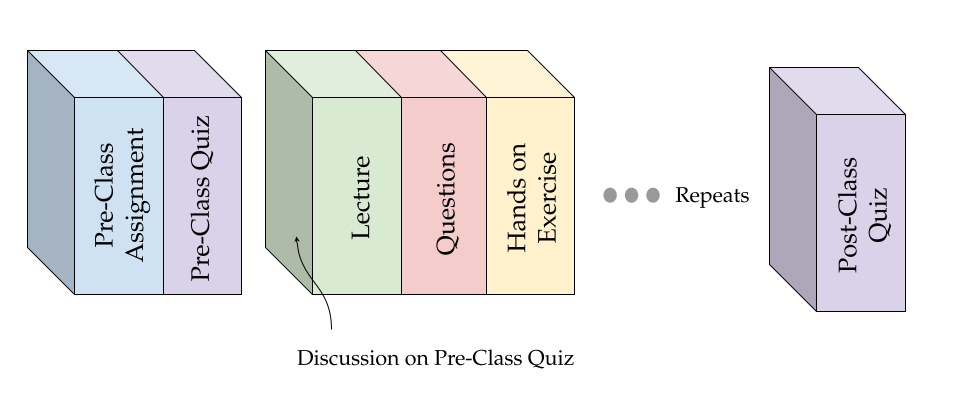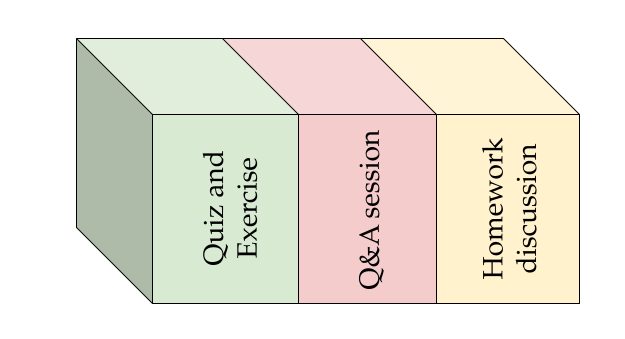Statistics. Math. Computer Science. Physics. Long ago, the four disciplines lived together in harmony. Then, everything changed when the Computer Science attacked. Only a master of all four elements, could stop them, but when the world needed it most, it was not invented. A few years ago the world discovered the new master, a scientist called data scientist, a master of all four elements.
Welcome to AI-1 A! The objective of this module is to provide fundamental understandings of machine learning models and get you working with the basic concepts of ML and AI.
You will start with the basic regression models (KNN, Linear, Multi, Poly), classification models (kNN, Logistic). Along the way, you will operationalize the key concepts of machine learning: picking the right complexity, preventing overfitting, regularization, and model evaluation.
At the end of this module, you will be able to run basic and advanced machine learning models, and tell how well they are performing.
This page introduces you to the team, the basic instructions, the schedule and various elements of our class.
The Team
Click on avatars of the team members to know more about them.
Instructors


Teaching Assistants





The Coursework
We have very carefully designed the coursework to give you, the student, a wholesome learning experience.
Each week shall include:
- 2 Sessions
- 2 Labs
- Office hours
Session - What to expect

The course includes two 1.5 hour sessions per week. Before the session begins, students are expected to complete a pre-class reading assignment and and attempt a quiz based on the same.
A session will have the following pedagogy layout which will be repeated three times:
- Approx. 15 minutes of live online instruction followed by approx 15 minutes of Q/A + Quiz + Exercises.
- Sessions will help students develop the intuition for the core concepts, provide the necessary mathematical background, and provide guidance on technical details.
- Sessions will be accompanied by relevant examples to clarify key concepts and techniques.
After the session, students are expected to complete a short post-class quiz based on the principal concepts covered in class.
Lab - What to expect

A lab is a TA driven 1.5 hour session that is divided into 3 major parts.
-
Each lab begins by revisiting the quizzes and exercises done in the previous lecture session.
-
After discussing exercises, we will have a semi-formal Q/A session. All doubts pertaining, but not limited, to the previous session are welcome.

Course Pre-Requisites
Your are expected to have a working knowledge of python, along with these three libraries:
- Numpy
- Pandas
- Matplotlib
All exercises in this course will be done in jupyter notebooks.
Note: No prior knowledge of machine learning libraries is necessary for this module
Before you begin the course, we have prepared for you a simple exercise to ensure your proficieny of the above libraries.
This will help you assess your preparedness for the course, and will also help you familiarize yourself with the platform.
Diversity & Inclusion
We actively seek and welcome people of diverse identities, from across the spectrum of disciplines and methods since Artificial Intelligence (AI) increasingly mediates our social, cultural, economic, and political interactions [1].
We believe in creating and maintaining an inclusive learning environment where all members feel safe, respected, and capable of producing their best work.
We commit to an experience for all participants that is free from – Harassment, bullying, and discrimination which includes but is not limited to:
- Offensive comments related to age, race, religion, creed, color, gender (including transgender/gender identity/gender expression), sexual orientation, medical condition, physical or intellectual disability, pregnancy, or medical conditions, national origin or ancestry.
- Intimidation, personal attacks, harassment, unnecessary disruption of talks during any of the learning activities.
Reference:
[1] K. Stathoulopoulos and J. C. Mateos-Garcia, “Gender Diversity in AI Research,” SSRN Electronic Journal, 2019 [Online]. Available: http://dx.doi.org/10.2139/ssrn.3428240.